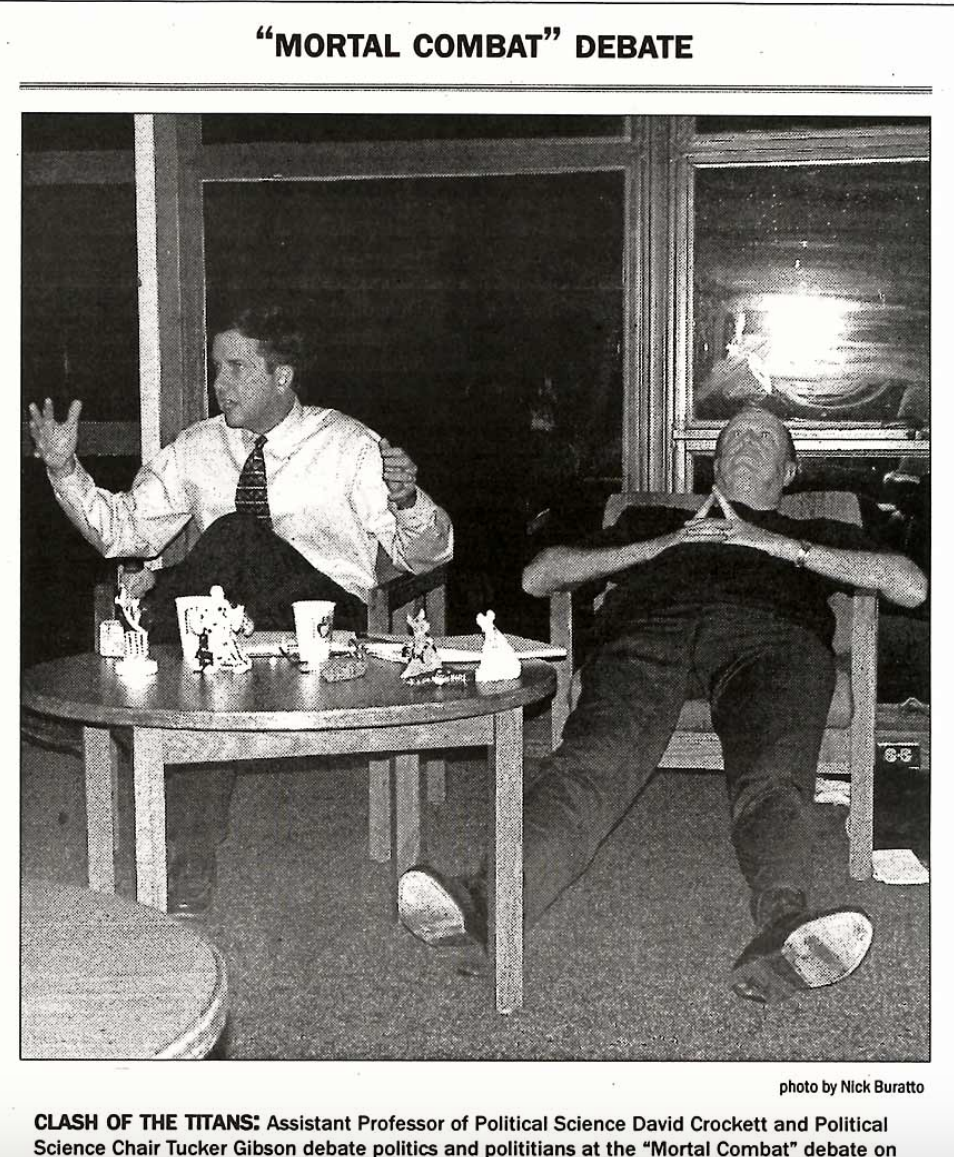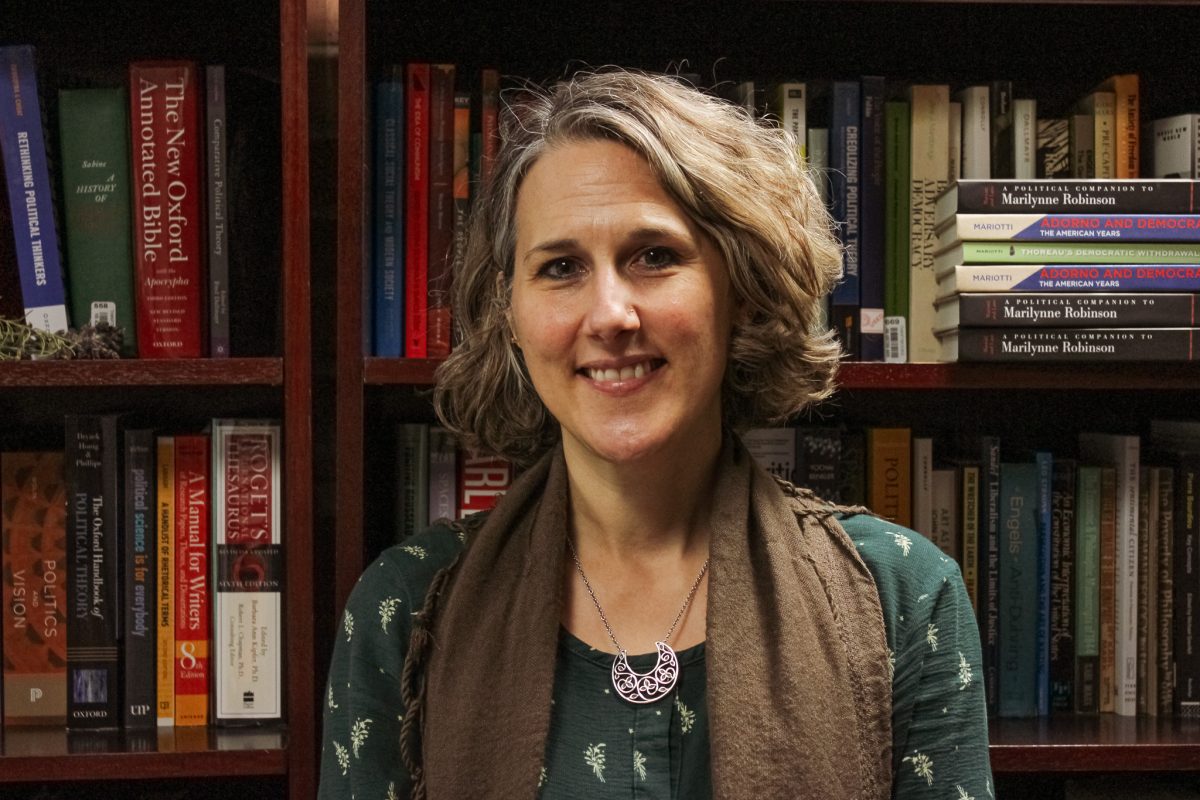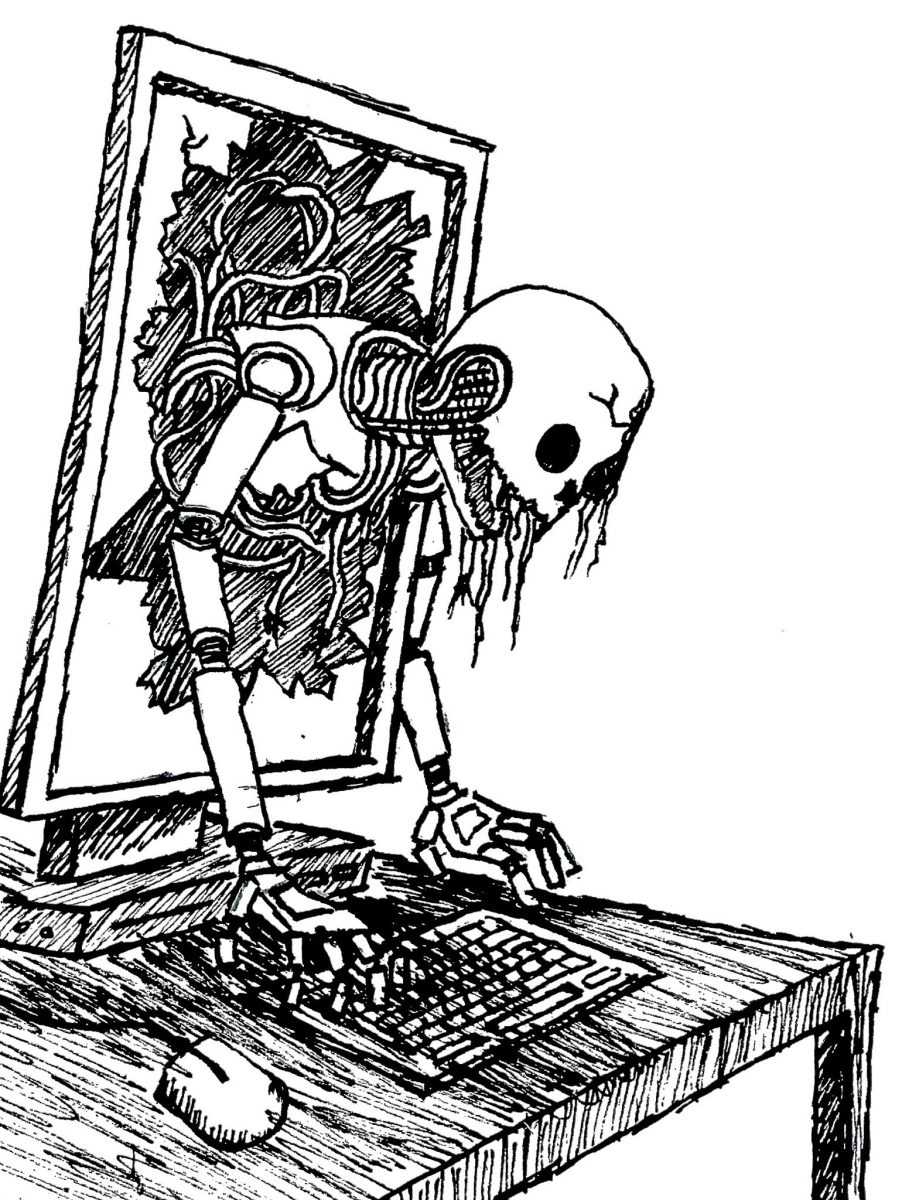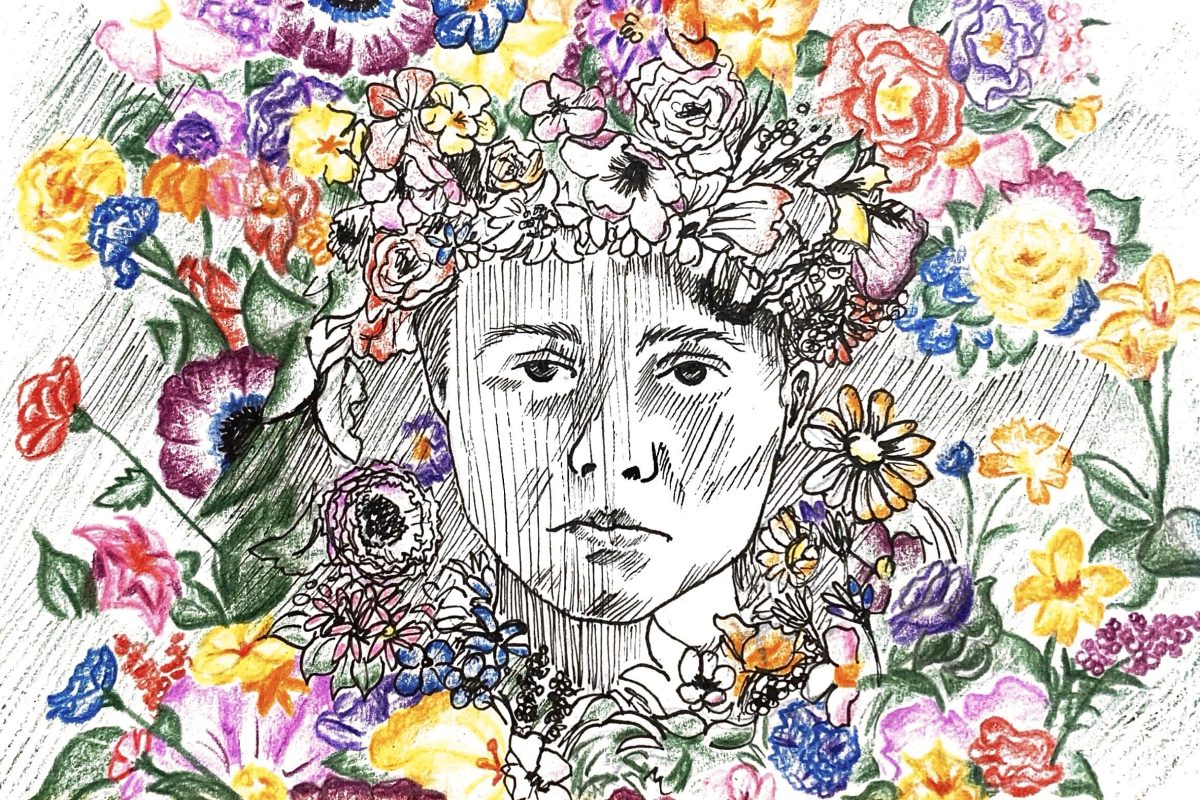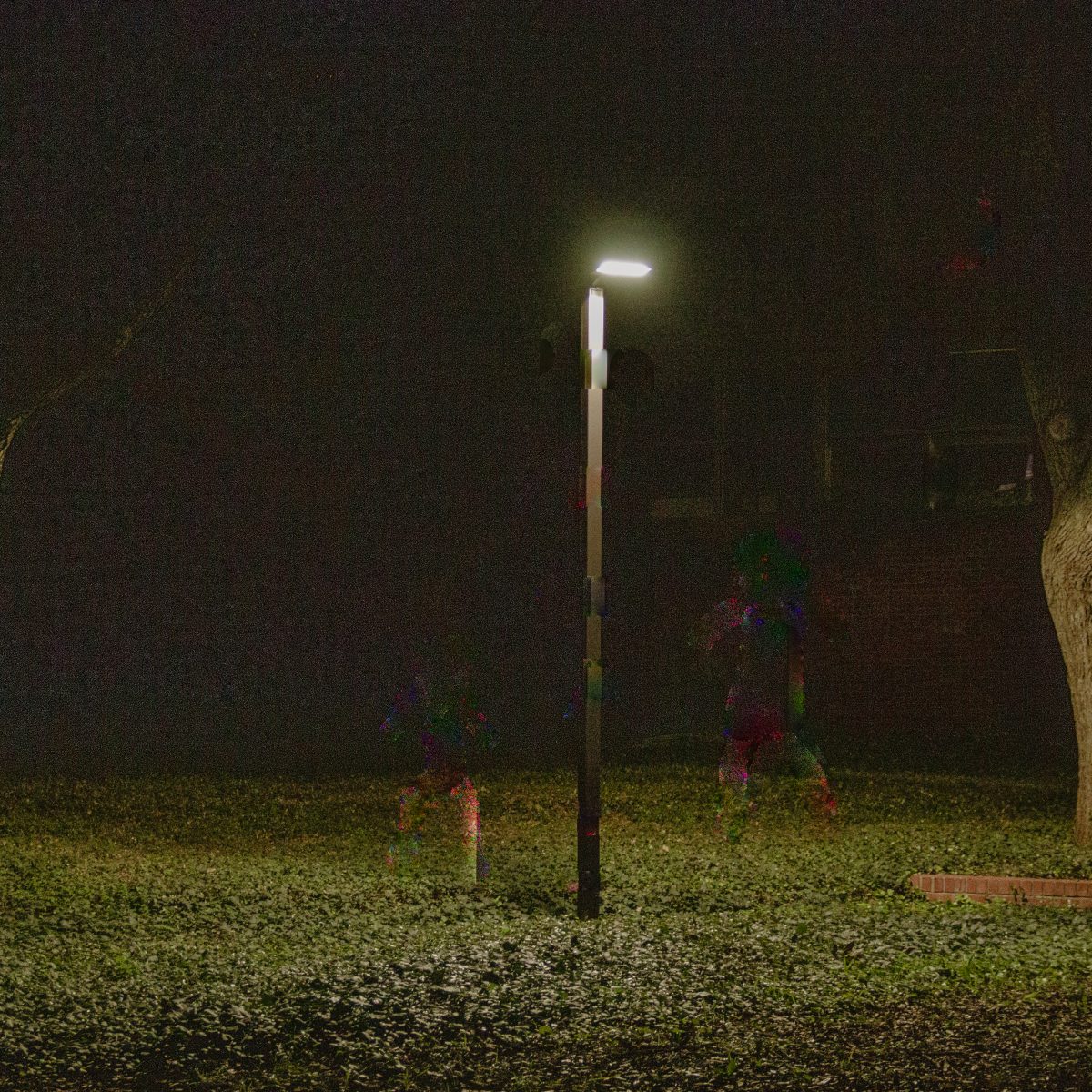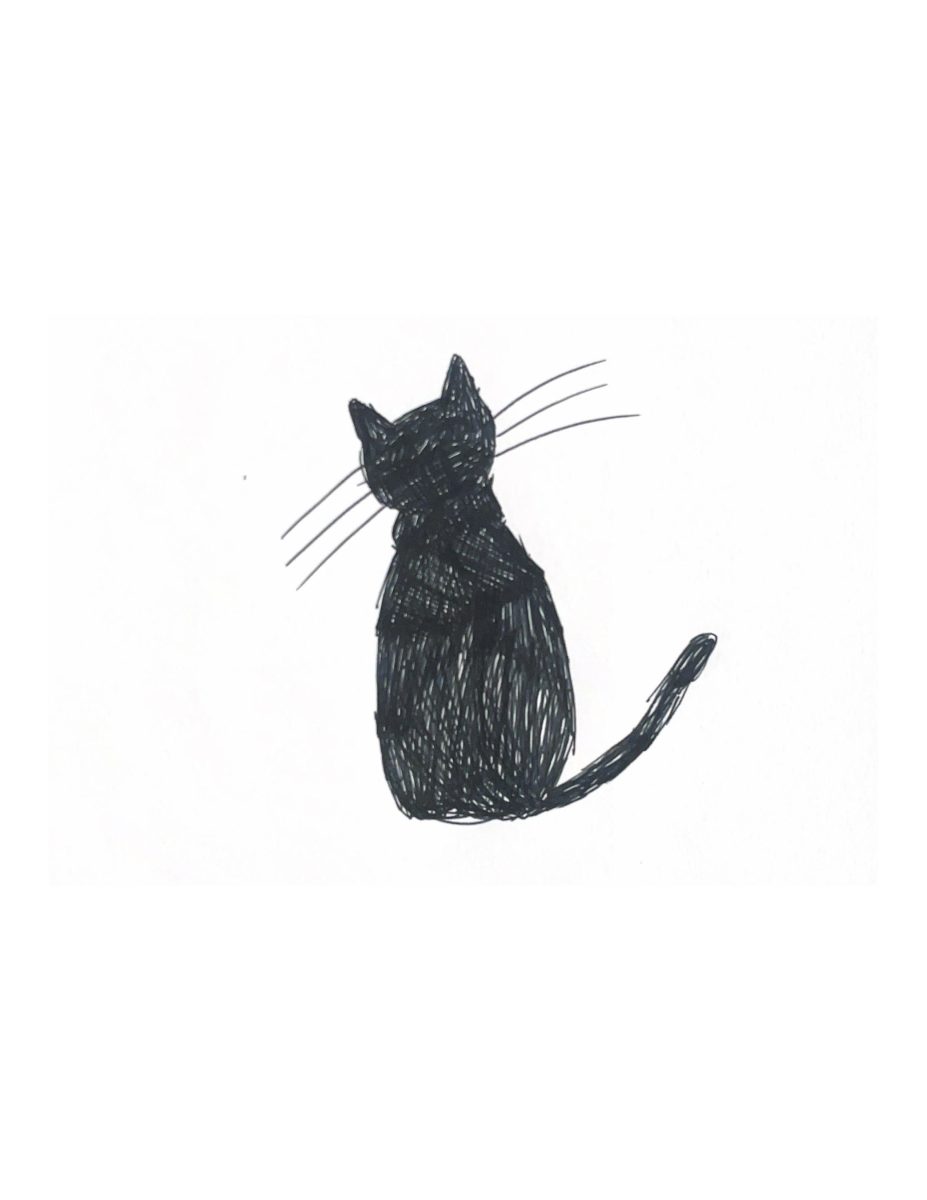While you might be familiar with Trinity’s current themed halls — HOPE Hall, Entrepreneurship Hall and Swashbucklers spring to mind — you might not know about some of the themed halls from Trinity’s past. Many of these halls arose from Trinity’s “Community Initiative” program in the 2000s, which somewhat resembles the living-learning communities Trinity has today. Themed environments were balanced by an obligation to serve the Trinity and local community in some way — through community service, educational components or cultural awareness.
LANGUAGE IMMERSION AND HISPANIC CULTURE HALLS (2001–2010)
Starting in Fall 2001, the third floor of Dick and Peggy Prassel Hall was once split into two halls — Spanish Immersion and Hispanic Culture. Spanish Immersion, intended for non-Spanish speakers who wanted to improve their fluency by only speaking Spanish in their hall and who provided special lectures, Spanish-themed study breaks and conversational classes — available through a partnership with the Universidad Nacional Autónoma de México, based in San Antonio.
The Hispanic Culture Hall gave Hispanic and Latinx students a space to share and explore their increasing student involvement culture, a concept that is similar to 2019’s proposed Afro-Affinity Hall. A 2002 Trinitonian article states that hall residents “experienced a tour of a downtown museum, discussions with professors and received salsa and meringue dance lessons from professor of modern languages and literatures Bladimir Ruiz.”
These halls, available for all years of students, were a collaborative effort between Residential Life, members of Academic Affairs and the Department of Modern Languages and Literature, with input from students.
2000 PRESIDENTIAL ELECTION HALL, KNOWN AS “TRINITY ELECTS” (2000–2004)
“Trinity Elects,” a themed hall in Harold D. Herndon Hall, was created as a place where students interested in politics, current affairs and the 2000 election could have debates and discussions with their peers. David Tuttle, who was the director of Residential Life as well as the dean of students in 2000, was involved in creating the hall. Along with Mike Boyd — the hall’s Resident Advisor — Tuttle strove to invite speakers from the San Antonio community to come to the hall and discuss politics. While Residential Life had a ban on political posters in halls, the ban was lifted for Trinity Elects so that students could become more involved in local political events.
TRINITY HOUSE OF POLITICS (2004–2007) AND TRINITY HOUSE OF LIBERAL POLITICS (2008–2010)
Trinity House of Politics, had a similar aim as Trinity Elects of in politics, focusing on engaging the Trinity community. One of their most interesting features was the once-a-semester “Mortal Combat,” where the hall invited two Trinity professors to debate about politics in the Storch foyer or Tiger’s Den. For example in September 2004, David Crockett, professor of political science, debated against Tucker Gibson (former chair of the Department of Political Science) on terrorism, economics and gun control.
“It was good to have the opportunity to debate our opposing views, and to be able to model for students what civil discourse can look like,” Crockett said.
Starting in 2008, the Trinitonian mentions Trinity House of Liberal Politics (THOLP), which was based in Murchison. THOLP members wrote opinion columns in the Trinitonian, such as a column in a 2008 Point/Counterpoint in support of President Obama, as the “members of THOLP” and held political events on campus, including a political barbecue to register students to vote in the 2008 elections.
ARTS AND AESTHETICS HALL (2004–2006)
According to the 2004 Mirage, the Arts and Aesthetics Hall, located on the first floors of Lightner and Thomas, was a place where students interested in the arts could socialize. There were bulletin boards hung in the hall where residents could post their poetry and art, as well as an “entire wall in the stairwell dedicated to artistic expression.” As part of the halls’ community engagement requirements, the Arts and Aesthetic floor hosted regular movie viewings and poetry readings.
NINJA HALL (2004–2006)
The Ninja Hall was unofficially founded in 2002 when members of the hall started living together, referring to the hall as the Ninja Hall. It was awarded official community status from Residential Life in 2004. The hall’s founders — Read Holman, Ben Stern, Dave Levy and Simran Jeet Singh — wanted to create an intramural team to challenge the fraternities. Everyone in the hallway was a member of the intramural ninja team, which competed in various events throughout the course of the year.
Singh, who taught in Trinity’s religion department from 2016 to 2018, explained the concept behind the hall’s creation.
“We were a group of first years who were all involved in different activities on campus, but we came together around our love for sports competitions,” Singh said.
The Ninjas and the Swashbucklers had a friendly rivalry. In 2005, an anonymous member of the Ninjas wrote a humorous Trinitonian column against the Swashbucklers’ “Talk Like A Pirate Day” where he argued that “ninjas and pirates are diametrically opposed,” and that ninjas are in fact superior to pirates. Another article says, “First and foremost, the Ninjas are a close group of friends who have a reputation for hating the Swashbucklers. According to the group, Ninjas forever, Pirates never, Ninjover and out.”
POLYMORPHISM HALL (2007–2010)
A 2007 Trinitonian article mentions the Polymorphism hall, which focused on the concept of diversity. “Their members, though there are only 16 of them, include someone from Vietnam, a Buddhist, two Californians and a student with a giant foam cowboy hat.” Group outings included attending cultural events and dining at culturally diverse restaurants.
In 2010, the Community and Chinese Hall. Chinese Initiatives Program, which organized like-minded students Swashbucklers remains around, into living-learning communities, was disbanded by Residential Life and replaced with Block Housing, where groups of students could claim three suites and live together without having to provide community programming. While the community halls were thus permitted to stay at Trinity as groups of like-minded friends, they were officially discontinued with exceptions made for Swashbucklers and Chinese Hall. Chinese Hall has since disbanded, but Swashbucklers remains around and the living-learning halls have since been slowly reintroduced onto campus. For example, we have HOPE Hall, Entrepreneurship Hall, and next semester three more identity-based living options will be added: the Afro-Affinity Hall, Gender-Inclusive Hall and Sustainability Hall.

